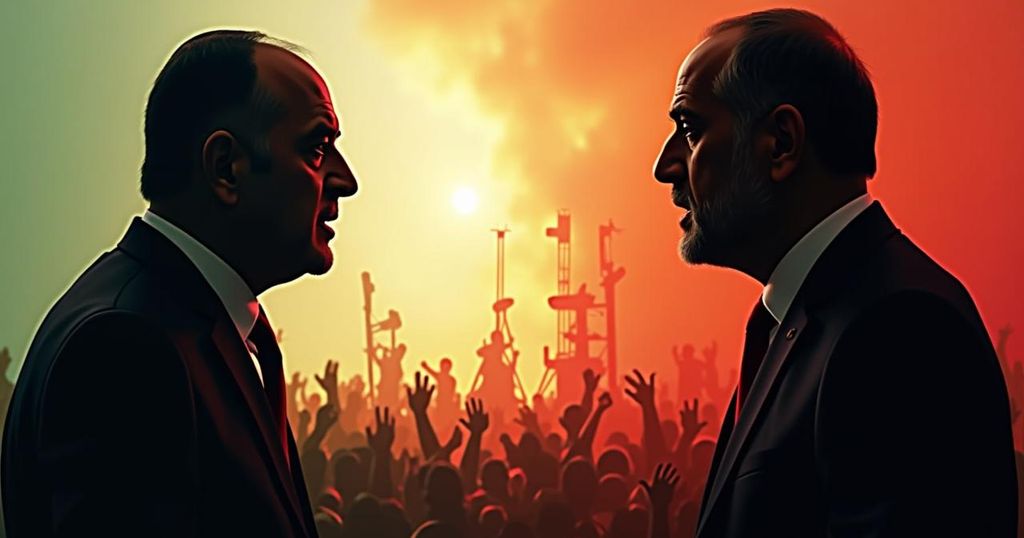Escalating Israel-Iran Conflict Challenges Harris’s Campaign Strategy

The escalation of the Israel-Iran conflict creates significant political hurdles for Vice President Kamala Harris as the 2024 election nears. With missile strikes over Tel Aviv intensifying the narrative of global instability, Harris must contend with the challenges posed by both progressives seeking accountability from Israel and moderates desiring steadfast support. The outlook for her campaign is uncertain as Netanyahu’s military strategies unfold, compelling her to clearly articulate a strong stance on foreign policy during necessary debates and public appearances.
The recent escalation in the Israel-Iran conflict has intensified political challenges for Vice President Kamala Harris as the 2024 presidential election approaches. With missiles being launched over Tel Aviv, former President Donald Trump’s narrative of a chaotic global landscape is gaining traction, complicating the political landscape for the Biden-Harris administration. Six months prior, both President Biden and Vice President Harris found themselves navigating the delicate balance between a progressive base advocating for accountability from Israel and moderate voters urging unwavering support for the nation. Their hope was that the hostilities in Gaza would wane, or that Israeli Prime Minister Benjamin Netanyahu would pivot towards peace. However, as the election draws near, it has become evident that Netanyahu is pursuing an independent military and political strategy. This development places Harris in a precarious position, as she must hope that the ongoing conflict does not further weaken her candidacy by bolstering Trump’s assertion of Biden-Harris leadership being ineffective during global crises. The vice-presidential debate, positioned as a pivotal moment for the Harris campaign, was largely overshadowed by dramatic visuals of Iranian missiles targeting Israeli defenses. Prime Minister Netanyahu communicated a strong resolve, stating, “Iran made a big mistake, and it will pay for it.” In response, Vice President Harris firmly condemned Iran, labeling it a “destabilizing, dangerous force in the Middle East.” Her running mate, Governor Tim Walz of Minnesota, emphasized the significance of steadfast leadership in such turbulent times, asserting that the character of the leadership is critical during moments of crisis, particularly contrasting with Trump’s focus on trivial matters during the debate. As the situation in the Middle East continues to unfold, observers are left questioning the impact these events will have on the electoral prospects of Harris and Biden, especially with the electorate remaining largely undecided.
The conflict between Israel and Iran has escalated significantly, particularly affecting international political discourse and the domestic campaigns of both major parties in the United States. As the situation involves complex geopolitical stakes, both the Biden administration and its opponents perceive the conflict as a litmus test for leadership and foreign policy effectiveness. Established narratives and public perceptions regarding national security and international relations play a pivotal role in shaping voter attitudes as the election approaches, thus impacting campaign strategies and messaging.
In summary, the escalating Israel-Iran conflict presents substantial challenges for Vice President Kamala Harris as she navigates the political landscape ahead of the 2024 election. The situation complicates her and President Biden’s attempts to balance demands from various factions within the Democratic Party while also addressing concerns from moderate voters. As global tensions mount, Harris’s response to this crisis will be scrutinized, potentially affecting her candidacy and the public perception of her leadership capabilities.
Original Source: www.nytimes.com







